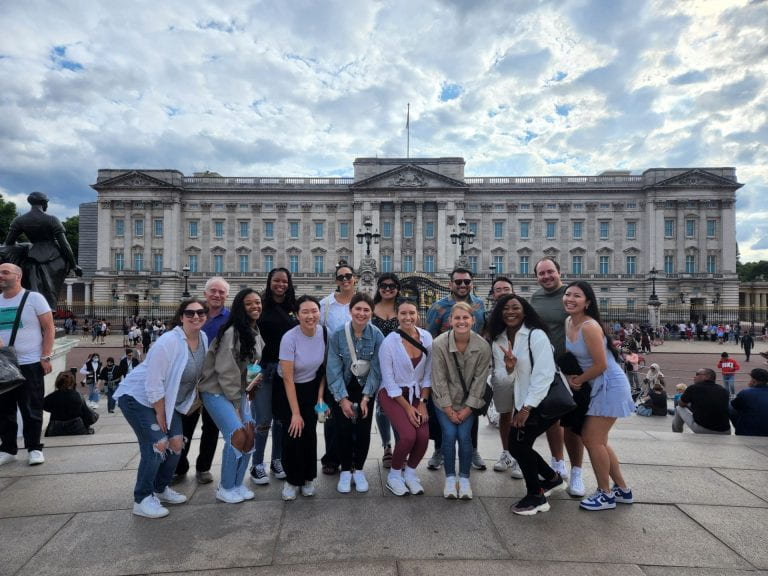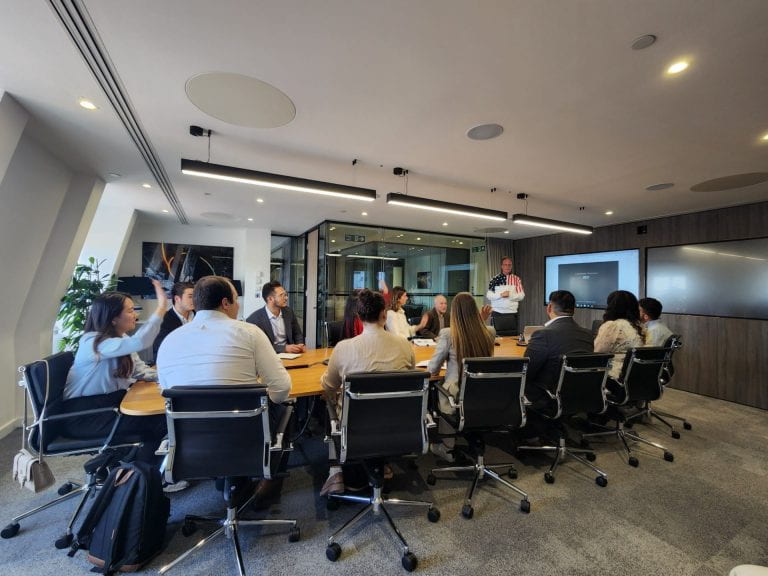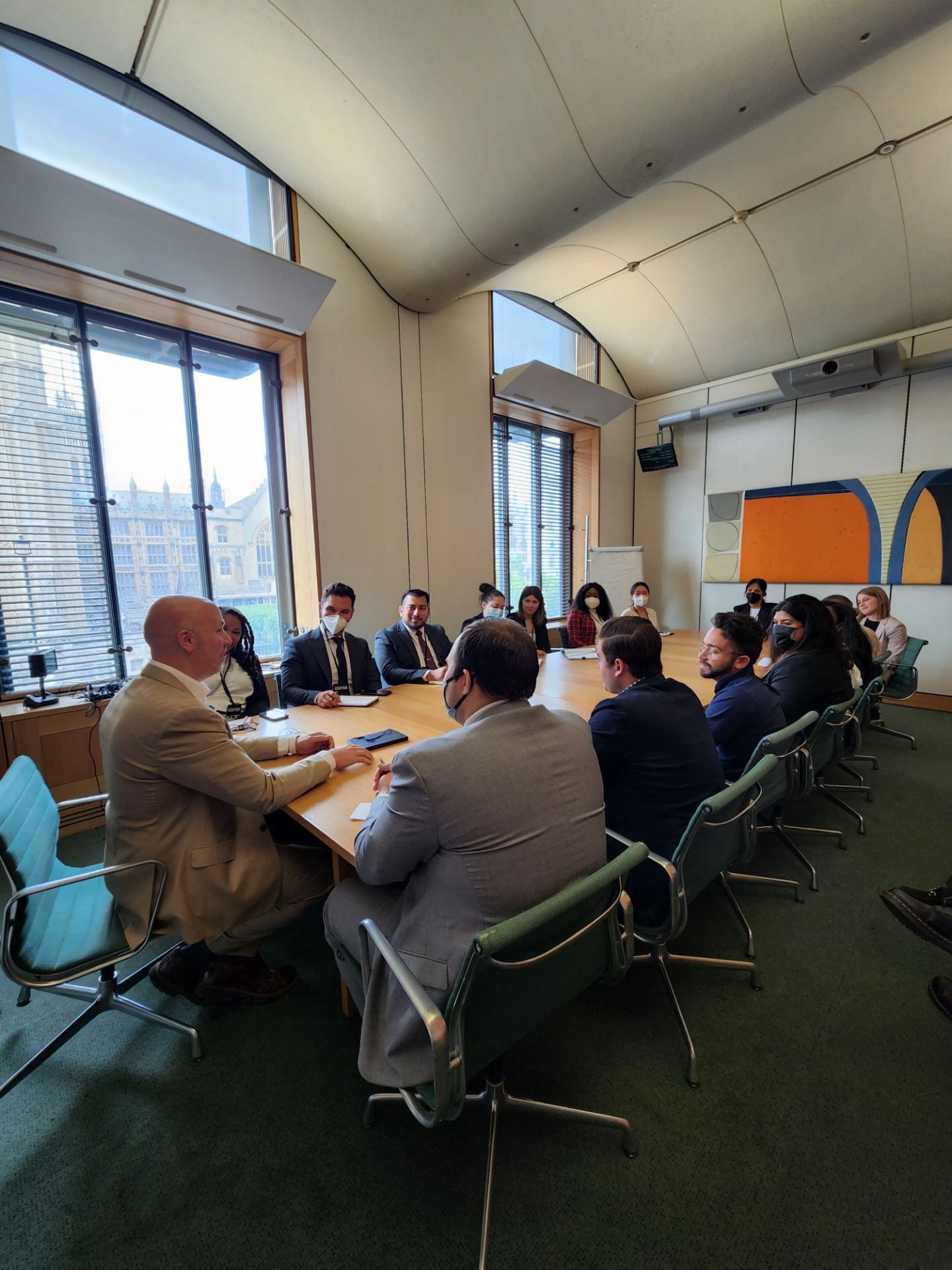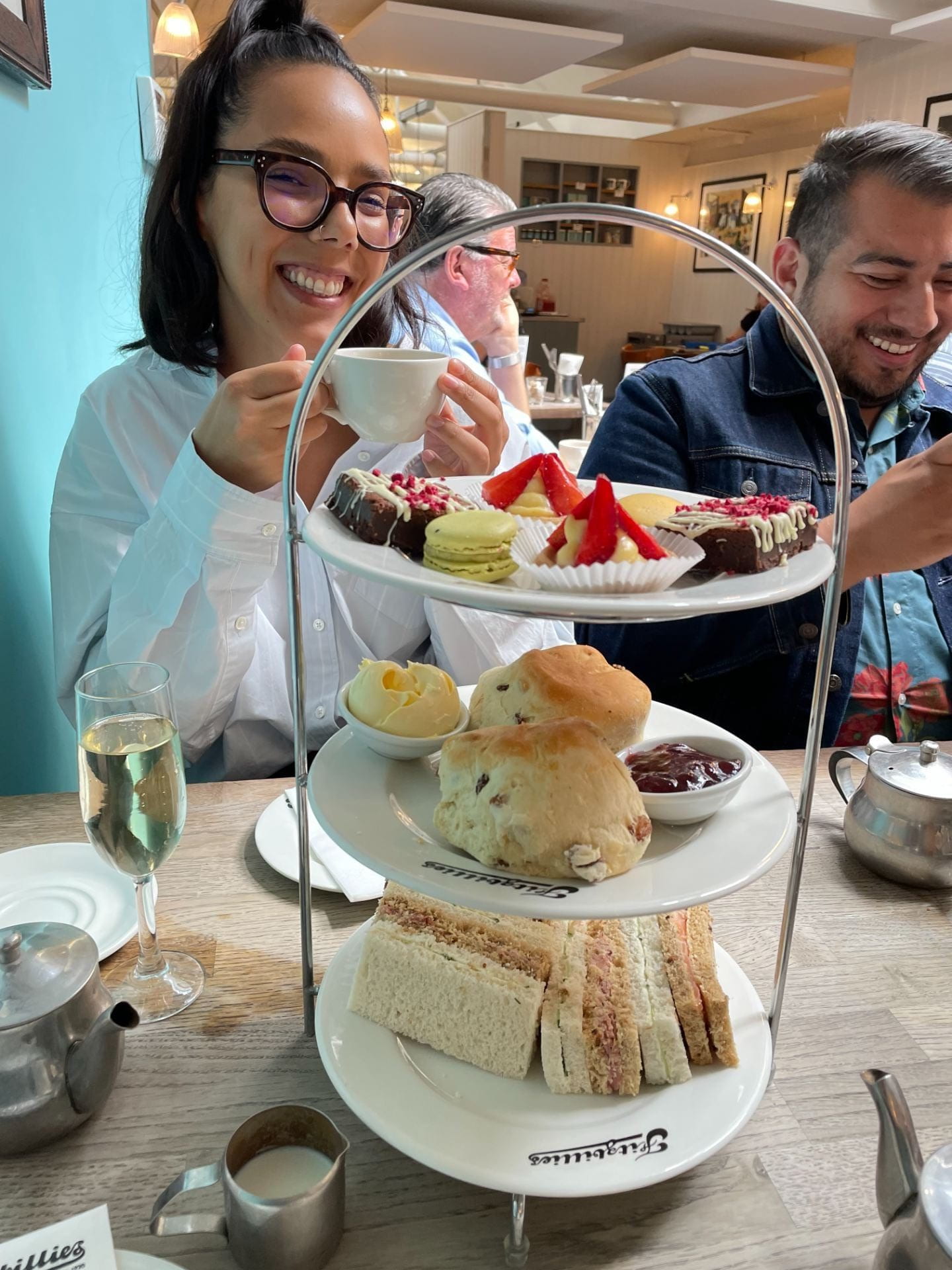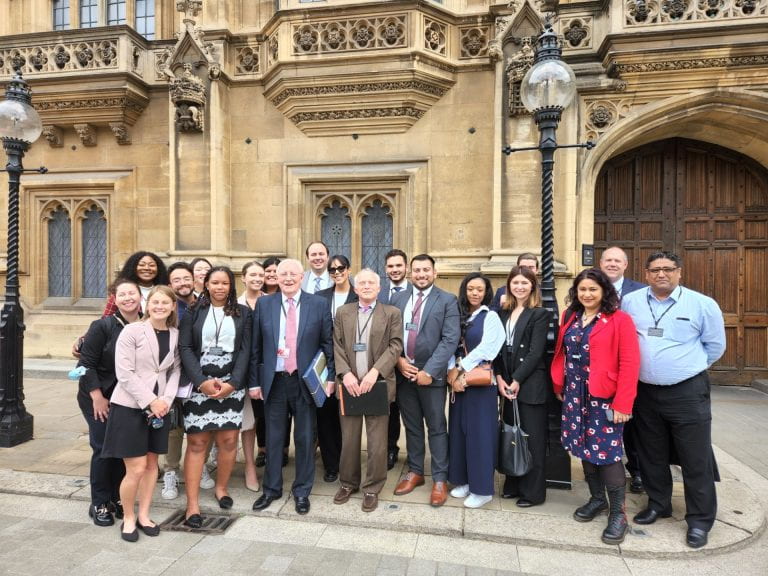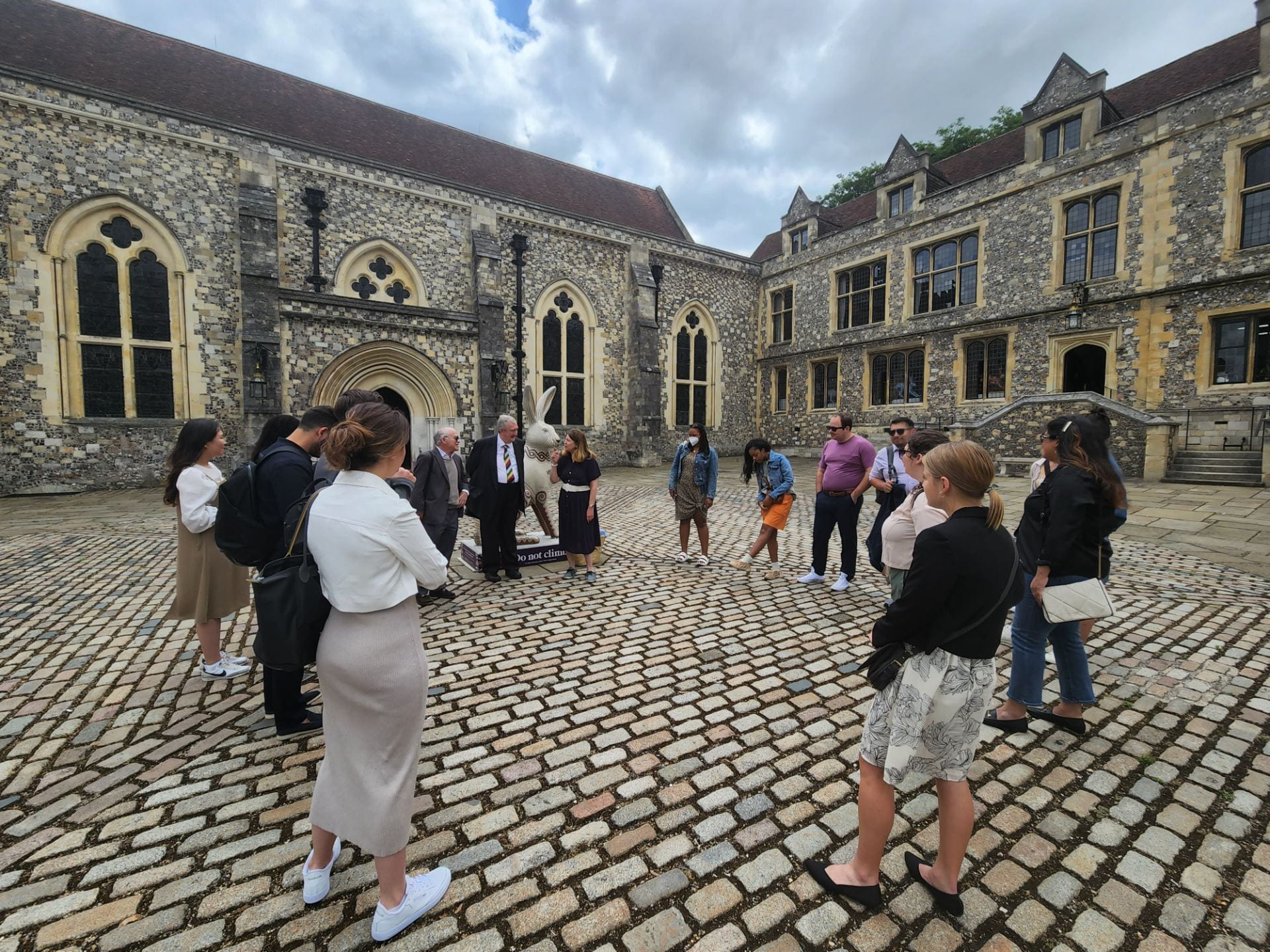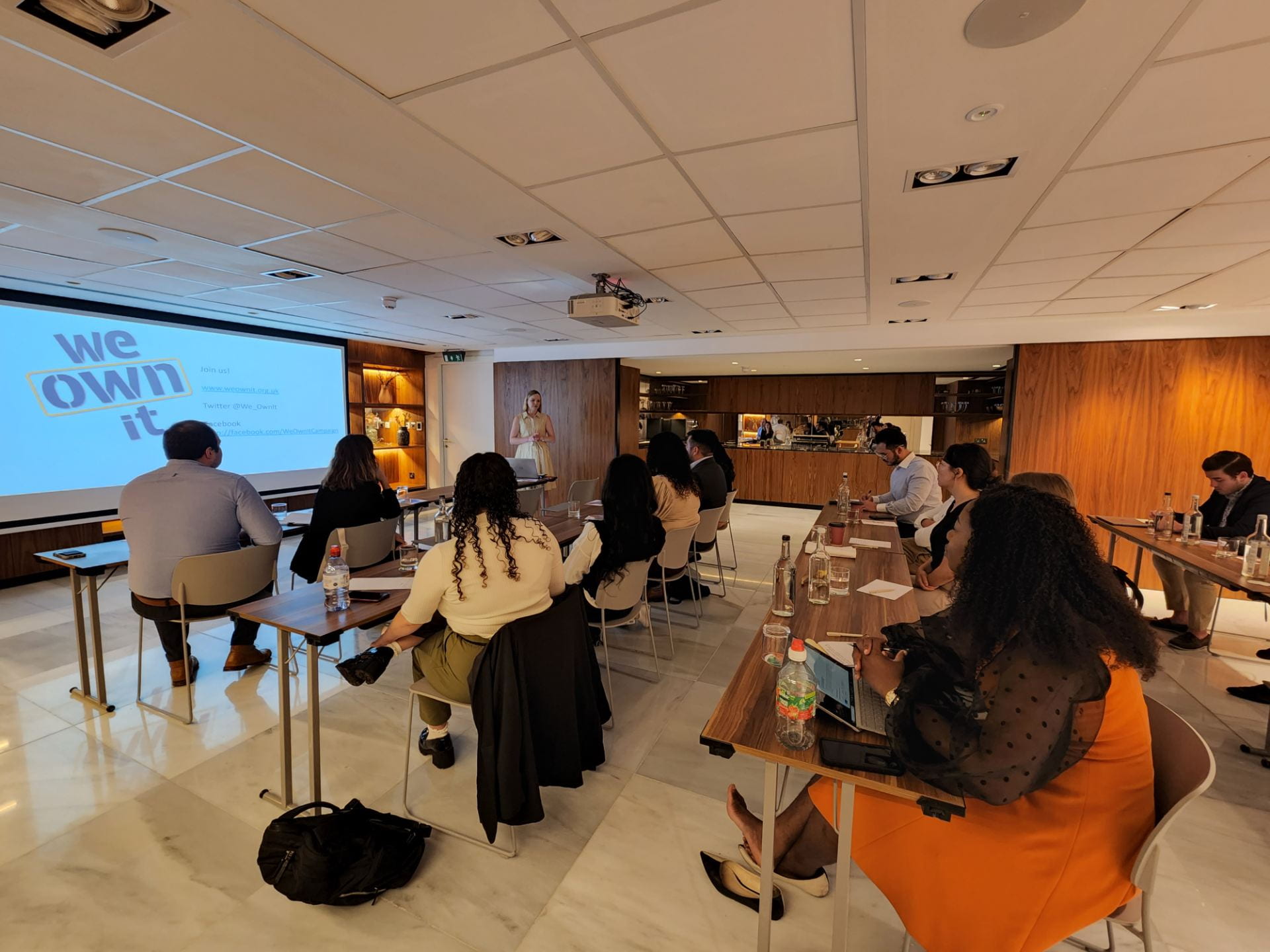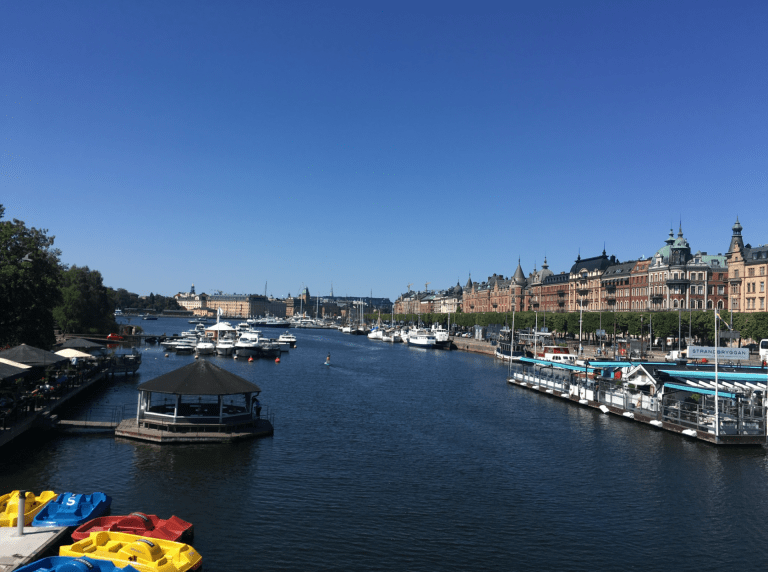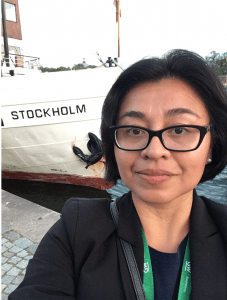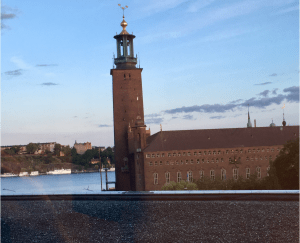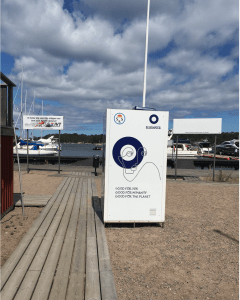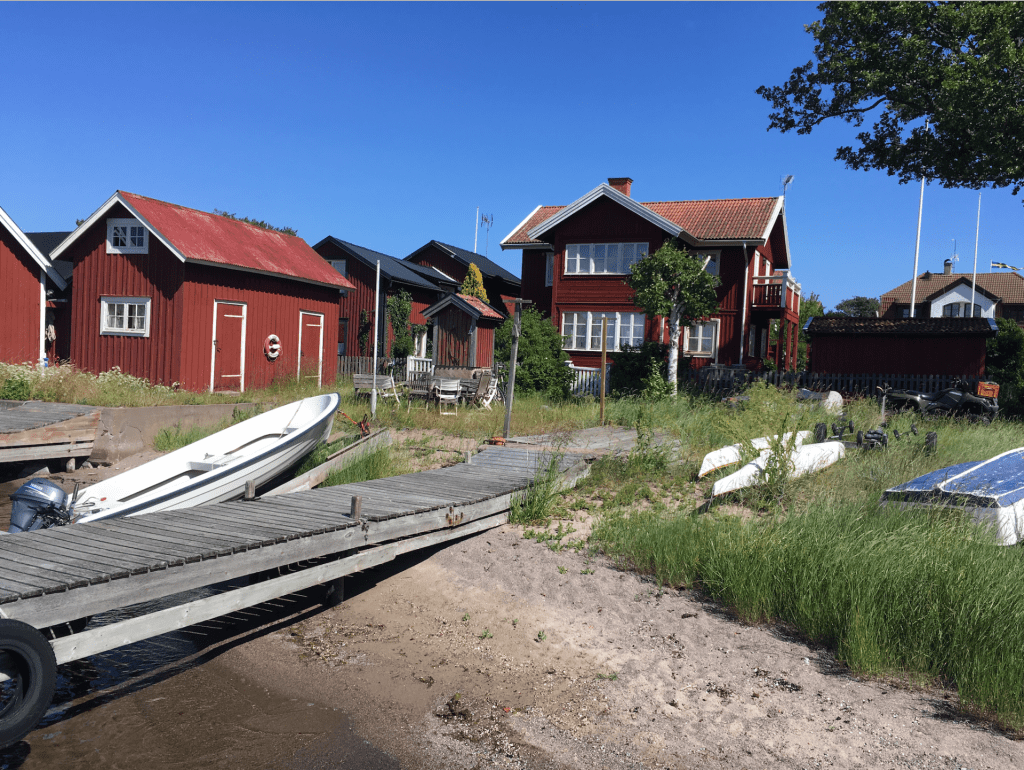Featured in the above photo: The STAP UK 2022 group in front of Buckingham Palace.
Reflection by Sarah Fritz, MPP student.
There are few experiences as an adult where I feel completely safe and encouraged to ask questions. At work, I do my best to come across as competent and prepared, and in class as a public policy student, I strive to quietly excel without drawing attention to myself in the classroom. Touching down in London, I was expecting more of the same. However, throughout my week as a student in Business and State: Privatization and Public-Private Partnerships, I rediscovered the joy of learning and uncovered a confidence in my curiosity.
Throughout both my undergraduate and graduate career, I have often had trouble separating education from grades. I viewed class time as a necessary hurdle to a participation score and preferred to teach myself the material. But in London, the professor’s emphasis on group discussion, alongside my peers’ engagement, allowed for a rare combination of intellectual stimulation in a low-stakes environment. As a result, our unique group culture and authentic dialogue broadened my perspective of what learning should be.
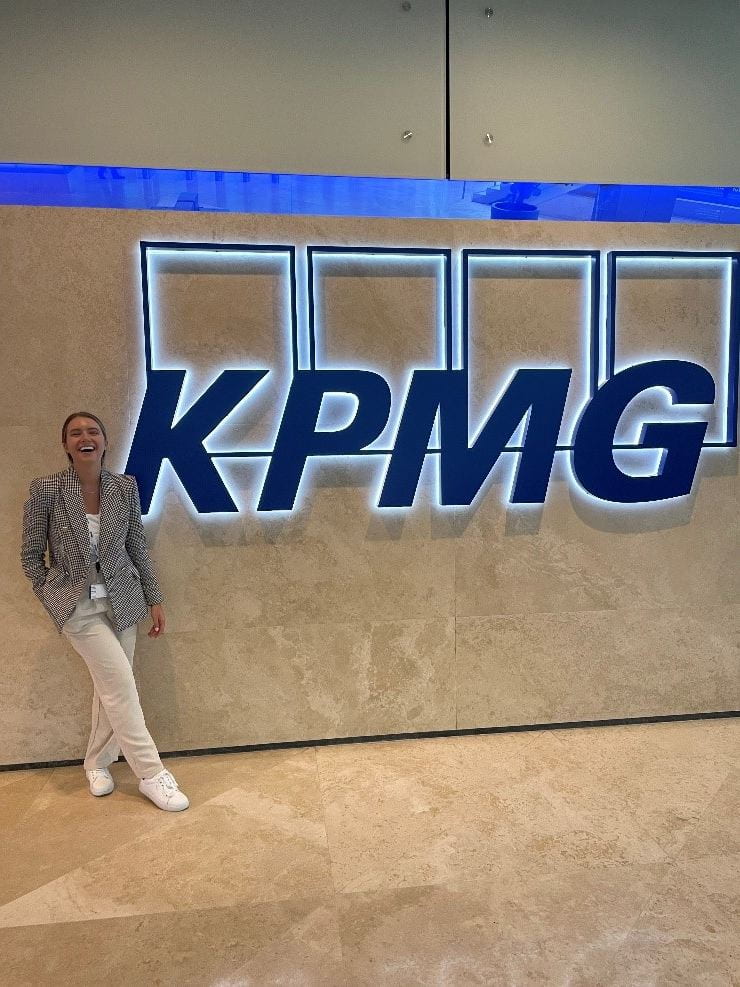
Author, Sarah Fritz, at KPMG.

STAP UK participants engaged in discussion.
Without the pressure of an exam, I felt encouraged to genuinely interact with the presenters and drive the conversation in a direction that interested me. I subsequently learned more in one week in London than I have in months within a classroom. I found myself incentivized to research topics outside of class, fueled by a desire to meaningfully contribute to discussions and understand the perspectives of those around me.
Traveling and learning alongside students with diverse backgrounds and interests allowed class discussions to meander around a myriad of subtopics, enabling us to look at each public-private partnership through a different lens. I was consistently impressed with the knowledge of my peers and felt grateful to be in the room with them. I have heard it said, “if you are the smartest person in the room, you are in the wrong room”. This experience was a reminder that I was certainly in the right place.
While there were many interesting subjects discussed throughout our week in the UK, such as the National Health Service and the future of sustainable energy, the topic I found most beneficial to my interest in broadband policy was the concept of private equity investment in infrastructure. Throughout my research on municipally owned and operated networks, I have consistently run into the same issue: how does a rural municipality acquire the funding to build its own network? Peter Durante from the Macquarie Group provided a unique solution.
I had never considered the ability of the private sector to provide a financial cushion to municipalities experiencing high barriers to entry for building networks. Mr. Durante implored us to not count out the private sector when planning infrastructure projects, citing the ability of firms to innovate and provide data analysis alongside funding.

STAP UK participants in front of The Royal Logistics Corps Museum.
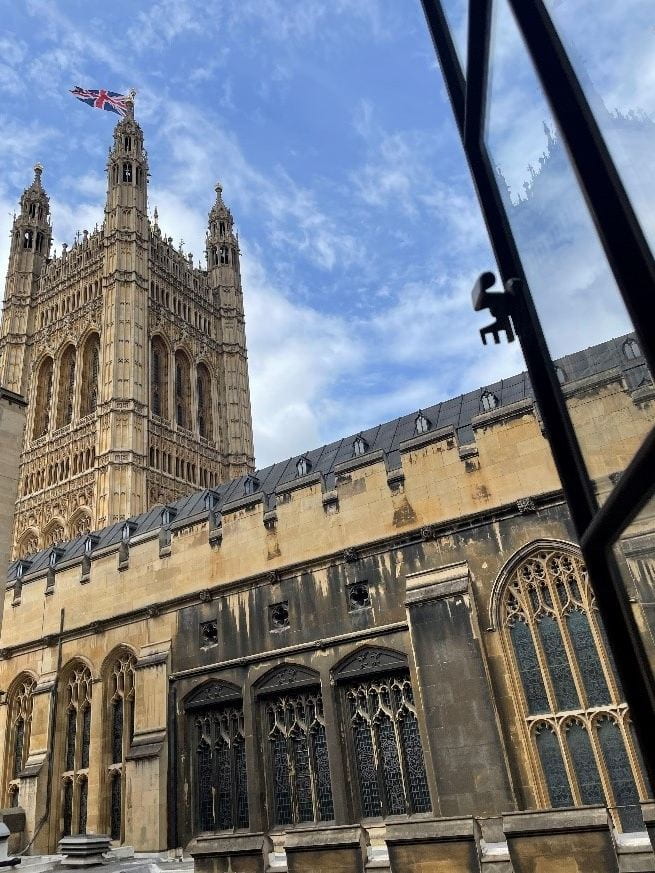
A view of Parliament.
Each speaker we encountered in London was genuinely passionate about their subject and had both an authentic interest and eagerness to learn from us too. For example, our conversation with Member of Parliament Carolyn Harris encouraged me to view menopause as both a complex women’s health and policy issue. Her knowledge of the subject was illuminating, but it was her passion for a solution that piqued my interest, and I deeply admired her desire to connect with the students in the room.
Our in-person discussions provided a pleasant reminder that articles and white papers can only take students so far. The opportunity to ask detailed questions of experts challenges us to be bold in our curiosity and induct our own knowledge into the conversation.
I am so grateful for my time in London with GW because I learned that remaining anonymous in the classroom was hindering my experience and devaluing my investment in education. This program gave me the tools to rediscover the confidence and curiosity within myself that had been buried by a desire to achieve. If you asked me before the trip what my metrics for success in school are, I would have said: “to get all As”. As a result of this trip, I would now answer “to both meaningfully contribute and listen to those around me…and make a few friends too”.

